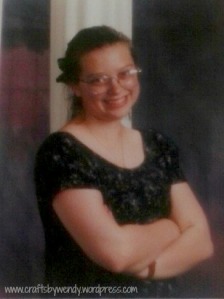
I enjoy reading, but I often find it difficult to find (ahem, make) time for it. When I was asked to review A Life in Balance, I happily accepted. The book is the autobiography of Frank Belgau, founder of the Learning Breakthrough Program, and chronicles his life as it led to the development of his program. I received this book as a PDF which I put on my Kindle to read, but it is only available for purchase as a print copy for $18.95 (currently on sale through Amazon for $16.94, but I don’t know how long it will be that price). The book is geared toward adults, but would also be good for older teens who were interested in studying mild learning disabilities.
The book opens in the 1960s, when Mr. Belgau is first beginning to make strides in his research and teaching of “unteachable students.” It quickly goes back in time, however, to the 1940s, when Mr. Belgau was a junior high school student. He tells us how he came to love science; it was all thanks to his teacher, Mr. Royer. I found it amusing how he entered the classroom for the first time and his heart sunk. You see, Mr. Royer was an old man. Young Mr. Belgau had been hoping to be taught by a “real” scientist – a young-ish guy in a lab coat. But in the 40s, all the young men were fighting in World War II. That left this old man to teach the children. Dismayed as he was upon seeing his science teacher for the first time, that all went away the minute Mr. Royer opened his mouth. You see, Mr. Royer had known Thomas Edison. The Thomas Edison. You can imagine how that one little tidbit would instantly make this old man more credible in the eyes of a pre-teen boy who hopes to be a scientist (after a career as a military pilot, of course!). At the end of that first class, Mr. Royer presented a scientific question to the class: “To what rule is the motion of {this} pendulum calibrated?”
He never gave them the answer. Instead, he simply told them, “It [science] isn’t about having the right answer. It’s about looking for the right answer.”
It’s clear from the way Mr. Belgau speaks about Mr. Royer – with near reverence – that the old scientist had a huge impact on the then 12-year-old.
The book moves on from there in a series of biographical type chapters. Mr. Belgau is telling his story of how the Learning Breakthrough Program was developed through his relationships with others. These people include students, parents, and fellow scientists and teachers. As early as the 1960s, he was having success teaching students that all the other teachers had written off. And the way he started was by going back to his days with Mr. Royer and his pendulum. What Mr. Belgau was slowly discovering was that “mental disabilities” (namely ADD, dyslexia, and other reading-based brain issues) are able to be overcome. He developed a series of exercises – starting with having students follow a pendulum suspended from the ceiling with their eyes – that somehow allowed their brains to bypass their disabilities. He continued to develop more and more exercises that further increased these students’ abilities. He found that after 15 minutes of his exercises, the students showed a marked improvement in their ability to read aloud and in their comprehension of what they had read. Reading about that was quite remarkable, especially as a mama with a (slightly) struggling student.
I want to close my review of A Life in Balance with just a few quotes from the book.
“I began to wonder how much of the lack of interest and resistance children have to reading comes from the simple fact that what they’re given to read when they are young is a waste of time.”
This is a great thought. I’m sure Dick and Jane served their purpose (or did they?), but why would we use such uninteresting books to teach our children? Give them easy readers from topics they’re interested in from the beginning, and we’re more likely to foster a love of reading.
“I learned to reserve praise for the moments when it was really due, not to dole it out liberally, over-affirming bad work to make the student feel good.”
This may not be “politically correct” in today’s world of everyone-is-equal-and-deserves-to-win, but I must say, I agree with Mr. Belgau. You need to walk the line between being mean and giving false praise. Constructive criticism is more beneficial than false praise any day of the week.
“Far too often, we set the bar just below just below the perceived ability of the children in our charge, and by so doing – whether as parents or teachers – we rob those children of an important motivation to push themselves toward success.”
I’m guilty of this. Big time. Fortunately, Will is not, so we balance each other out. Reading this, first in the book and now again as I review my notes to write this review, I’m committing to pushing my kids this summer. Not beyond what they can do, but not below, either. I need to give the motivation to succeed on their own.
If you’re interested in finding out more about Mr. Belgau and his work, make sure to head over to the Learning Breakthrough Program‘s website. There’s all kinds of good stuff there.
Blessings,
Wendy


Like this:
Like Loading...

















